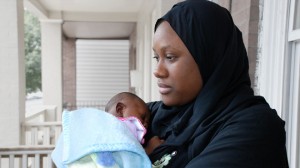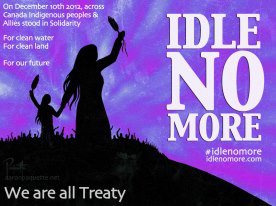Our old blog has a new home! Thanks for finding us.
Today there are two things I would like to introduce you to: 1. Myself, 2. The UN’s Universal Declaration of Human Rights’ 64th Anniversary.
As the new Curator of Human Rights Collections in the Archives and Special Collections, Thomas J. Dodd Research Center at UConn, it is my goal to bring the global challenges of human rights to the archives. My experiences in archives and activism working with the LGBTTQ (Lesbian, Gay, Bi-sexual, Transgendered, Two Spirited, Queer) community, peace activists, Latin American Solidarity groups and Human Rights NGOs has provided me with the tools to address new concerns in the evolving discourse of human rights and archives. My intention is to focus collections policy and public programming toward the inherent needs of individuals and groups researching, advocating and seeking/experiencing human rights.
Now that you know who I am, lets talk about who you are and why the Universal Declaration of Human Rights matters. In 1948, most of the world was reeling from the horrors of war and oppression under fascism and imperialism. The Universal Declaration of Human Rights was drafted as a wish-list of rights to safeguard humanity from the atrocities of those who marshaled state power. The model of human rights was voiced through the vessel of state bodies “both among the peoples of Member States themselves and among the peoples of territories under their jurisdiction” (UDHR Preamble). In the globalized 21st century, rights have undergone a neo-liberal shift from the state-sanctioned arena of expressions and charters, to now being scripted to bolster a new and ever evolving individual. Economic individualism through the 20+ year old Free Trade agreements in North America have led the way in demonstrating that states are still very much involved in securing rights, largely for business to move freely and express rights of ownership.
The focus of this year’s 64th anniversary is on the liberation struggles in the Middle East and at home in the Occupy movements. The necessity of the individual’s rights to assemble and demonstrate as well as participate in the election of state representatives, are guarantees that attempt to eschew the inherent flaws in the system in place. However, what remains important is the historical legacy of this document which seeks to promote the always becoming nature of well being. Where these worlds collide are in the textile factories of Bangladesh, where last week 112 workers died in a fire that was preventable. Infuriatingly just the most recent travesty from the deregulated periphery, the factory made clothes for Wal-mart (among other US clothing managers)which benefits from cheap labor and nonresponsibility for externalities – such as fire safety measures which they refused to pay for. Meanwhile, workers in Wal-mart stores across the US on November 23rd (Black Friday) participated in the largest demonstration in their history in order to demand adequate pay and benefits.
Now you’re wondering where archives come in. The role which history plays is that of the sounding board for current democratizing movements in the Middle East, the US and all over the world. Archives provide context for how things came to be. Collections which document the push and pull of state and society throughout the 20th century help build the framework for what is to be done in the future. How the State responded to communities and organizations of people who challenged its ability to provide. The newly administered States and their guarentees to the rights of the past must be advocated and built upon in the Middle East, the individual rights to work in a safe environment must be acquired in Bangladesh and South Asia as a region, and the economic ideology of US consumers and producers need catalyzing evidence which demonstrates that economic disparity is a human rights issue at home and abroad.
On this day and everyday we can take action through historical reflection, it is paramount that we acknowledge where people have come from and what they had to overcome to get there/here/everywhere and what is still becoming the individual, the group, the community, the global.
Venceremos,
Graham




